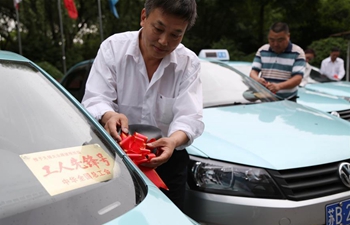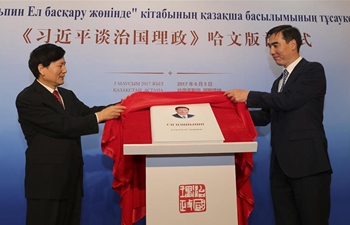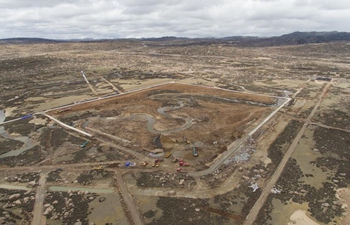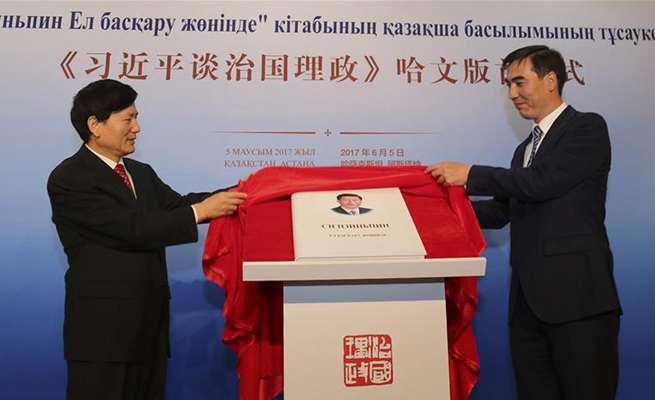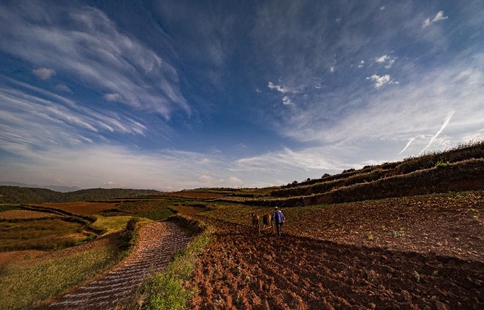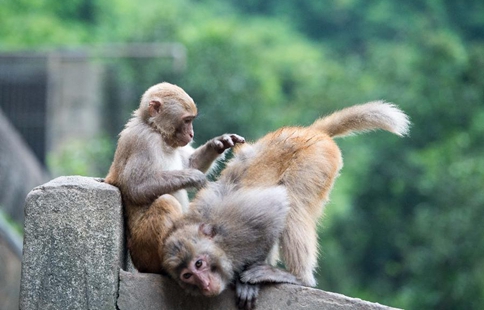by Carina Lopez, Wu Hao
MEXICO CITY, June 5 (Xinhua) -- China's Hakka artists captivated thousands of local people with exotic musical performances in central Mexico, before a four-day exhibition of Chinese intangible cultural heritage was wrapped up here on Sunday.
Festivities kicked off in the city of Tlalnepantla in the central State of Mexico with a series of musical performances that began on Thursday and continued through Sunday. The cultural events are also part of the celebrations marking the 45th anniversary of the establishment of diplomatic relations between China and Mexico.
The artistic performances featured a 25-member troupe from Meizhou in China's southern Guangdong province, showcasing traditional songs and dances of China's ethnic Hakka people.
While Tlalnepantla is located just north of Mexico City, few cultural events travel outside the capital, remaining inaccessible to communities in other parts of the country, said Abraham Trejo, head of Tlalnepantla's office of international affairs and sister cities.
"The residents of the State of Mexico come to these events full of curiosity and anticipation, appreciating the unique performance without having to travel to the other side of the world," Trejo told Xinhua.
Such cultural events build a bond between the peoples of China and Mexico, and at the same time underline China's efforts to preserve its rich cultural heritage, Trejo said.
One of China's greatest cultural treasures is the traditional "mountain song" of the Hakka people, sung in their own dialect, which represent the Hakka's oral history and literature.
Hakka songs, one of China's best-known folk music traditions, "are numerous and colorful, sound harmonious and sweet, and ... rely on musical resources to express human emotion," Yang Yuanling, deputy director of Meizhou City's Center for Preservation of Hakka Songs, told a press conference.
During the conference, Yang invited the audience to learn a bit about the traditional singing style, and several people joined her on the stage.
Fellow artist Li Huanxia, who specializes in playing Qingyi, the most important female role in Peking opera, said she was happy to be in Mexico to perform fragments of Guangdong Han opera, whose history dates back to more than 300 years ago.
Han opera, most popular in regions of China where the Hakka dialect is spoken as well as in some regions of southeast Asia that are home to Hakka communities, was included in China's second list of intangible cultural heritage in 2008.
Li invited the spectators to take a closer look at the elaborate costumes worn by opera performers and practiced a few traditional gestures and postures used to convey emotion, as a group of young Mexicans on the stage attempted to imitate her moves.
"When listening to a Hakka song, you can feel very much at peace as the voice reaches your insides, leaving behind problems and focusing only on hearing the sound," local resident Pedro Pena Corona said.
But what most caught his attention was the way in which China is succeeding in preserving its traditions and pass them on from generation to generation.
"Both cultures (Mexican and Chinese) are very tenacious and persevering, as the conservation of their traditions shows," said Pena.






